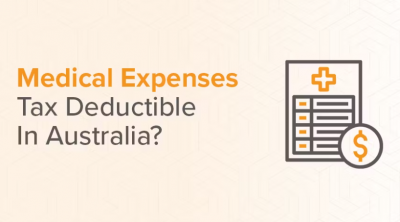Managing a self-managed super fund (SMSF) gives trustees more control over how their retirement savings are invested. However, this control also comes with serious legal responsibilities. Many trustees underestimate how complex the rules can be, and this lack of understanding is one of the main reasons SMSFs fall into trouble.
SMSFs are governed by the Superannuation Industry (Supervision) Act 1993 (SISA), which sets out strict rules around trustee duties, investment decisions, borrowing, benefit payments, and recordkeeping. If trustees are not familiar with these rules, it becomes difficult to identify risks or prevent mistakes. For this reason, education is not optional for SMSF trustees — it is a key part of protecting the fund and its members.
Why understanding SISA matters
Understanding SISA is essential to staying compliant. Many SMSF breaches occur because trustees are unaware of key rules, such as the sole purpose test, arm’s length dealings, and in-house asset limits. Knowing these basics helps trustees identify issues early. Early detection allows trustees to seek advice before minor errors become serious breaches. Most importantly, education protects members’ retirement savings, as breaches can lead to penalties, loss of tax concessions, and remediation costs paid from the fund itself.
The ATO’s growing focus on trustee education
The ATO has released draft Practice Statement (PS LA 2025/D2) explaining when it may issue an “education direction” to SMSF trustees under section 160 of SISA. This allows the ATO to require trustees, or directors of corporate trustees, to complete training where a lack of knowledge or behaviour is seen as a compliance risk.
While the aim is to improve standards across the SMSF sector, an education direction usually means the ATO has already identified a breach or serious concern. Trustees should not wait for this to happen. Taking steps to stay informed and educated from the outset puts trustees in a far stronger position and helps avoid unnecessary compliance issues.
Practical steps trustees can take now
There are several simple and effective ways trustees can strengthen their understanding and reduce risk.
Start with official guidance.
The ATO provides free SMSF courses that cover the full lifecycle of a fund, including how to set one up, how to run it correctly, and how to wind it up. These resources are designed specifically for trustees and are a strong foundation.
- Setting up an SMSF: https://smallbusiness.taxsuperandyou.gov.au/setting-up-a-self-managed-super-fund-smsf
- Running an SMSF: https://smallbusiness.taxsuperandyou.gov.au/running-a-self-managed-super-fund-smsf
- Winding up an SMSF: https://smallbusiness.taxsuperandyou.gov.au/winding-self-managed-super-fund-smsf
Test your understanding.
The ATO also offers online knowledge checks to help trustees assess how well they understand their responsibilities. While these tests are useful, a basic pass should not be seen as enough. Trustees should aim for a high level of confidence, especially in core compliance areas.
Seek professional advice early.
If something is unclear, or if a situation feels uncertain, it’s best to ask for help straight away. Early advice can often turn a potential breach into a routine fix and may reduce the risk of penalties or enforcement action.
Keep good records.
Trustees should document training completed, advice received, and the reasons behind key decisions. Clear records demonstrate an intention to comply and can be valuable if the fund is reviewed.
Final thoughts
Being an SMSF trustee brings both opportunity and responsibility. Understanding the rules is the most practical way to protect your fund, your savings, and your peace of mind. Rather than waiting for problems to arise, investing time in education now can prevent costly mistakes later and help ensure your SMSF stays on track.
Pitt Martin Group is a CPA accounting firm, providing services including taxation, accounting, business consulting, self-managed superannuation funds, auditing and mortgage & finance. We spend hundreds of hours each year on training and researching new tax laws to ensure our clients can maximize legitimate tax benefit. Our contact information are phone +61292213345 or email info@pittmartingroup.com.au. Pitt Martin Group is located in the convenient transportation hub of Sydney’s central business district. Our honours include the 2018 CPA NSW President’s Award for Excellence, the 2020 Australian Small Business Champion Award Finalist, the 2021 Australia’s well-known media ‘Accountants Daily’ the Accounting Firm of the Year Award Finalist and the 2022 Start-up Firm of the Year Award Finalist, and the 2023 Hong Kong-Australia Business Association Business Award Finalist.
Pitt Martin Group qualifications include over fifteen years of professional experience in accounting industry, membership certification of the Australian Society of Certified Practising Accountants (CPA), Australian Taxation Registered Agents, certified External Examiner of the Law Societies of New South Wales, Victoria, and Western Australia Law Trust Accounts, membership certification of the Finance Brokers Association of Australia Limited (FBAA), Registered Agents of the Australian Securities and Investments Commission (ASIC), certified Advisor of accounting software such as XERO, QUICKBOOKS, MYOB, etc.
This content is for reference only and does not constitute advice on any individual or group’s specific situation. Any individual or group should take action only after consulting with professionals. Due to the timeliness of tax laws, we have endeavoured to provide timely and accurate information at the time of publication, but cannot guarantee that the content stated will remain applicable in the future. Please indicate the source when forwarding this content.
By Angela Abejo @ Pitt Martin Tax










